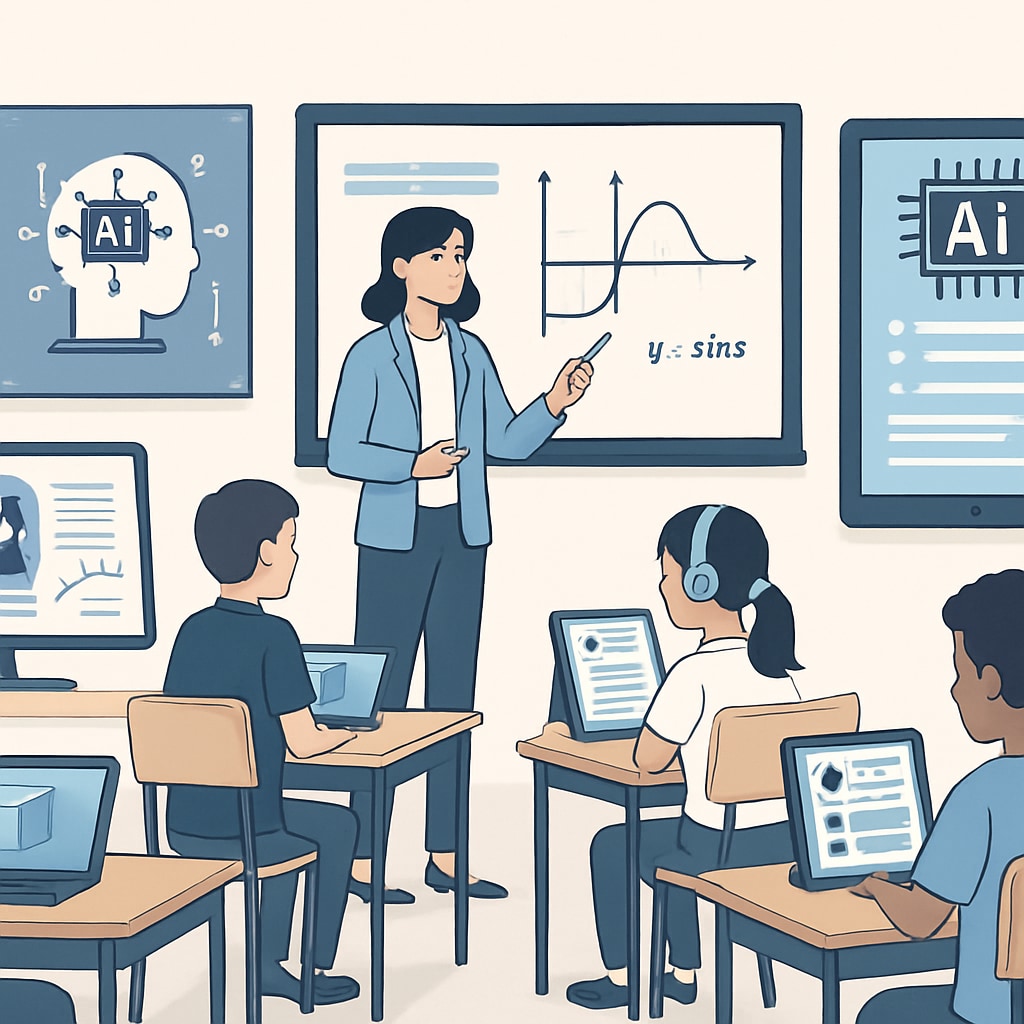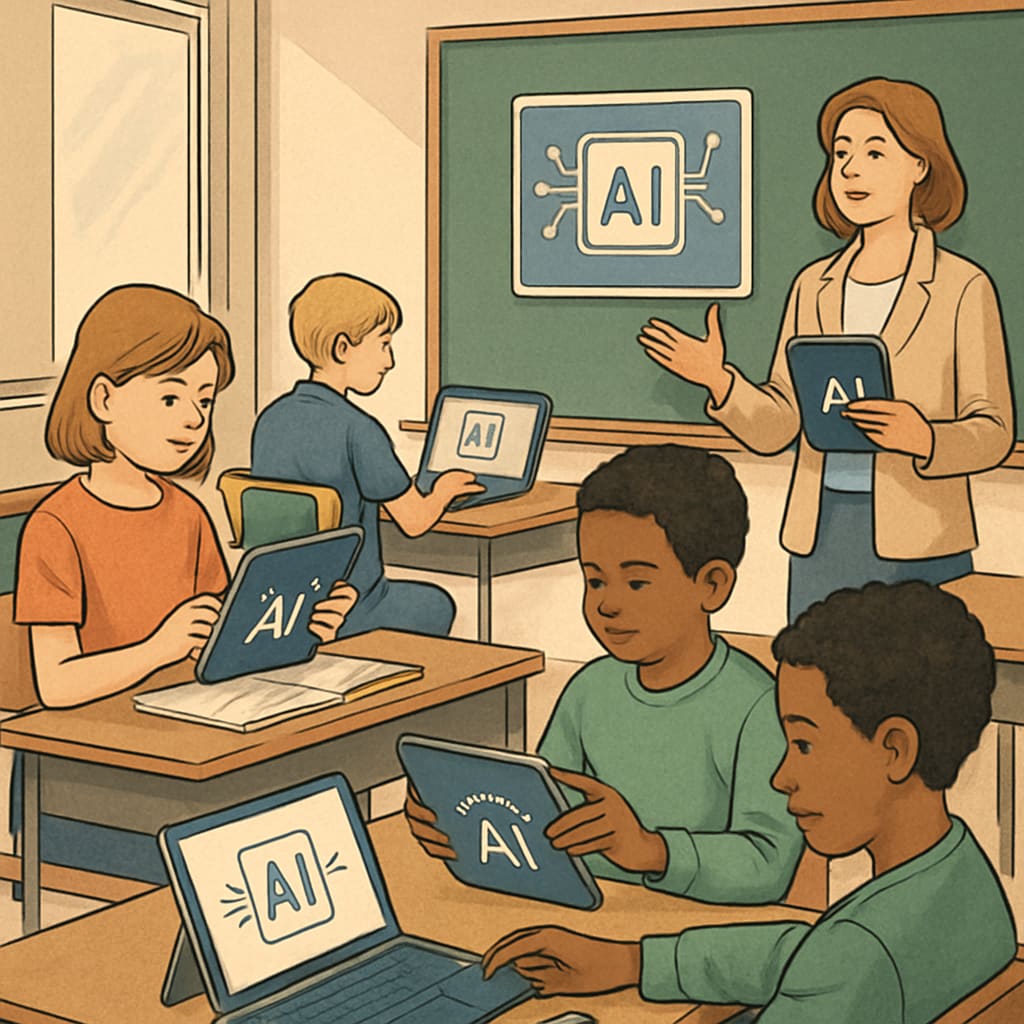Artificial intelligence (AI) is rapidly transforming various industries, and school education is no exception. The future impact of AI on education is profound, ranging from personalized learning experiences and evolving teacher roles to redefined assessment systems. As AI continues to advance, it is poised to revolutionize the K12 education ecosystem over the next 5-10 years, offering both opportunities and challenges for educators, policymakers, and parents alike.

Personalized Learning: A Game-Changer in Education
One of the most significant impacts of AI on school education is its ability to enable personalized learning. AI-powered systems can analyze a student’s progress, preferences, and challenges to tailor educational content to individual needs. For example, adaptive learning platforms adjust the difficulty level and type of content based on real-time feedback from students, ensuring that each learner progresses at their optimal pace.
Additionally, AI tools such as intelligent tutoring systems provide immediate support to students, acting as virtual assistants that answer questions and guide learning paths. This not only enhances engagement but also ensures that no student is left behind.
However, the reliance on AI for personalized education raises concerns about data privacy and equity. Ensuring that AI tools are accessible to all students, regardless of socioeconomic background, is essential to avoid widening the digital divide.

Redefining the Role of Teachers
AI is not meant to replace teachers but to augment their capabilities. With AI handling administrative tasks such as grading and attendance tracking, teachers can focus more on nurturing creativity, critical thinking, and interpersonal skills. In addition, AI can provide actionable insights based on student data, helping teachers identify areas where students need extra attention.
For example, AI-driven analytics can highlight patterns in student performance, enabling educators to customize lesson plans and interventions. This collaborative dynamic between teachers and AI creates a more efficient and supportive educational environment.
Despite these benefits, educators must adapt to new technologies and acquire skills to effectively integrate AI into their teaching methods. Professional development programs focused on AI literacy will be crucial to this transition.
Revolutionizing Assessment and Evaluation Systems
Traditional assessment methods, such as standardized tests, often fail to capture the full spectrum of a student’s abilities. AI offers innovative solutions to this long-standing challenge by enabling more dynamic and comprehensive evaluation systems.
For instance, AI can assess students through ongoing observations, analyzing language use, problem-solving strategies, and collaboration during group activities. Automated grading tools can provide instant feedback, helping both students and teachers track progress more effectively.
However, the use of AI in assessments must be carefully designed to avoid biases embedded in algorithms. Transparency and ethical considerations are vital when deploying AI-based evaluation systems.
The Challenges Ahead
While AI holds immense potential for transforming school education, it also presents significant challenges. Ethical concerns around data security, algorithmic bias, and the potential loss of human touch in education must be addressed proactively. Policymakers need to establish clear guidelines for the use of AI in schools, ensuring its benefits are maximized while minimizing risks.
Moreover, the cost of implementing AI technologies can be a barrier for many schools, particularly in underfunded regions. Bridging this gap will require collaborative efforts from governments, private sectors, and educational institutions.
In conclusion, artificial intelligence has the power to reshape the future of school education. From personalized learning to transforming teacher roles and assessment systems, AI offers exciting possibilities while posing challenges that demand thoughtful solutions. As we move forward, stakeholders must work together to harness AI’s potential responsibly, ensuring that it serves as a tool for equitable and effective education for all.
Readability guidance: Use short paragraphs for clarity, incorporate lists for summarizing key points, and maintain a balance of active voice. Spread transitional words evenly across the text to enhance flow and coherence.


